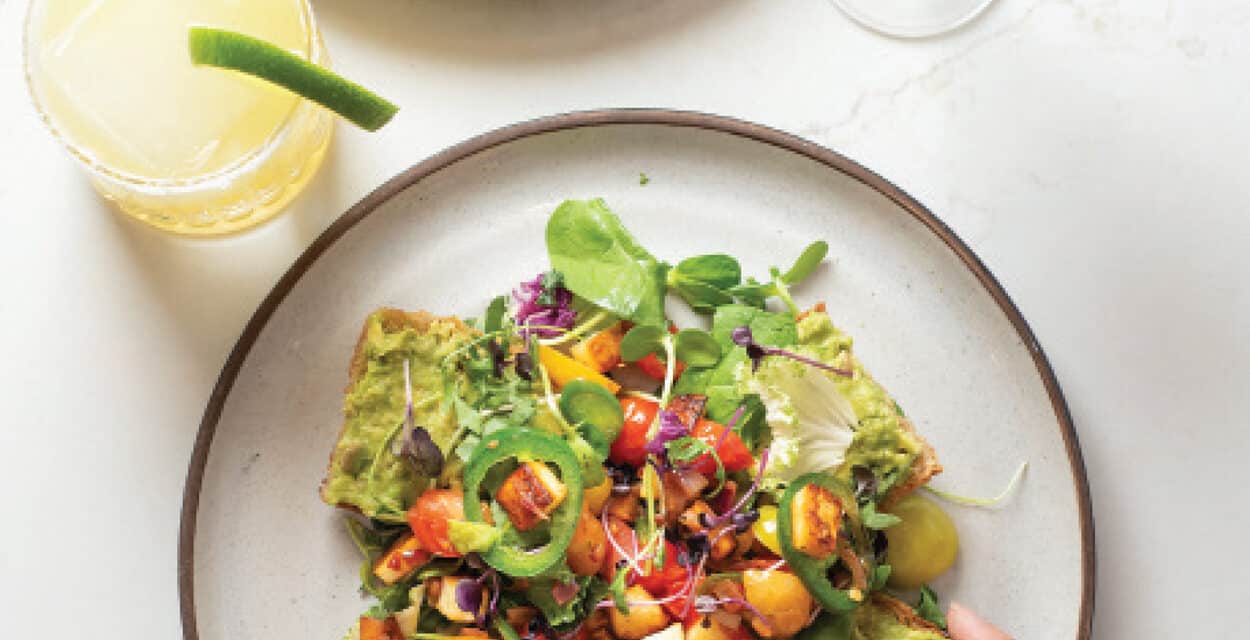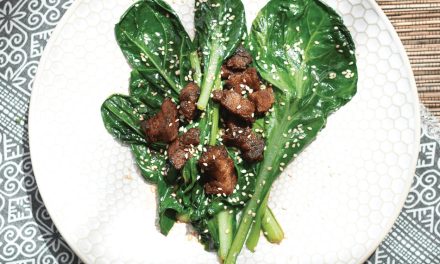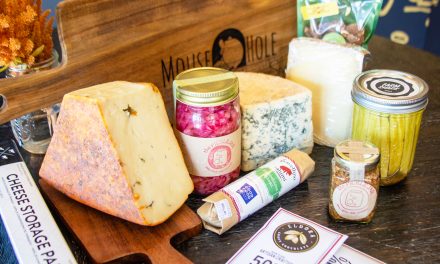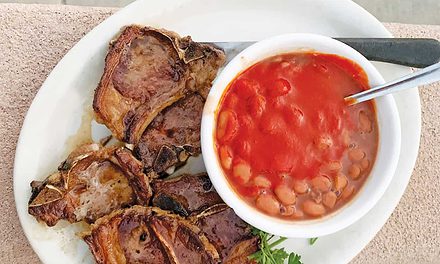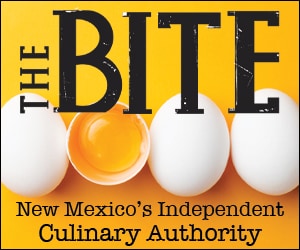A Las Cruces Fine Dining Bistro
Keeps the Community at Heart
By Shahid Mustafa · Photos by Douglas Merriam

Willow + Blaine garden-to-table bistro represents the intersectional cultural renaissance in the heart of the Mesquite Historic District of Las Cruces. That awakening is happening in what was the original El Camino Real, and subsequently became the town site of today’s Las Cruces. Branded after the middle names of its co-owners, Ariana Parsons and Tyrell Thackers, the restaurant opened in 2020, and specializes in multicourse meal experiences paired with exceptional wines and pre–Prohibition era cocktails.
Willow + Blaine exists in a neighborhood that Parsons describes as a “marvelous hybrid where wonderful collaborations can happen.” She says that thirty of the original founding families are still in the neighborhood, and she wants to reinvigorate the spirit of this distinctive neighborhood. The inspiration for the restaurant was actually the building itself, a 1940s stone building that was originally a single-family home and highlights the architectural diversity of a community that still hosts some of the original adobe homes from the mid-1800s.

Left: Ariana Parsons and Tyrell Thackers. Right: Steak sandwich with kale chimichurri and roasted balsamic tomatoes.
Willow + Blaine garden-to-table bistro represents the intersectional cultural renaissance in the heart of the Mesquite Historic District of Las Cruces. That awakening is happening in what was the original El Camino Real, and subsequently became the town site of today’s Las Cruces. Branded after the middle names of its co-owners, Ariana Parsons and Tyrell Thackers, the restaurant opened in 2020, and specializes in multicourse meal experiences paired with exceptional wines and pre–Prohibition era cocktails.
Willow + Blaine exists in a neighborhood that Parsons describes as a “marvelous hybrid where wonderful collaborations can happen.” She says that thirty of the original founding families are still in the neighborhood, and she wants to reinvigorate the spirit of this distinctive neighborhood. The inspiration for the restaurant was actually the building itself, a 1940s stone building that was originally a single-family home and highlights the architectural diversity of a community that still hosts some of the original adobe homes from the mid-1800s. “The building was kind of calling to us,” Parsons says, noting that she and Thackers would often walk by the site on their way to the adjacent Beck’s Roasting House & Creamery, which they’ve owned for nine years years. They’ve renovated the interior of the old stone building in the style of a French bistro, with a sophisticated and charming combination of texture and materials. Letting the building direct the vision, and assembling a team of talented local designers and carpenters, Parsons and Thackers have established an upscale, chic restaurant that brings something very unique to the Las Cruces fine dining landscape.
Emphasizing local and really fresh ingredients, they grow a small amount of food on-site in raised cedar beds to enhance the farm-to-plate experience and allow the opportunity for people to connect to food on another level. The plan for the garden is to plant as much as can be utilized, including an abundance of fresh herbs, squash, melons, figs, tomatoes, edible flowers, and heirloom peppers. Parsons likes “the idea of being able to grab strawberries from hanging baskets to add to mimosas.” They will incorporate pepper varieties developed at nearby New Mexico State University into their unique hot sauces, such as their balsamic pomegranate strawberry, which will be used in side dishes and in cocktails such as Bloody Marys.
When I went to Willow + Blaine with my family on a Sunday morning for brunch, my partner enjoyed the Eggs Benedict and I decided on the Pesto Grilled Cheese, which comes with the option of adding prosciutto. Our three-year-old, Aliah, wanted Carrot Cake French Toast, which we all shared. We were more than pleased with our experience, and when we can find a sitter, my partner and I plan to go for a dinner date.
Willow + Blaine’s wine bar lists solid selections from around the world, including an eclectic mix of European wines and wines from Chile, Argentina, New Zealand, and Australia. Parsons personally tasted at least a hundred wines to determine their list, which currently boasts seventy-five to eighty varieties (and they are working toward ninety). Already, Willow + Blaine has distinguished itself as the only restaurant in the area to consistently move a certain quality of wine, such as Opus One’s Overture.
The idea of a fine dining wine and bistro establishment located in the heart of an area designated as a food desert may seem contradictory, but there is strategy behind what Parsons and Thackers are trying to do. Parsons says, “One of our goals is to have a local mercantile that creates a community that is more walkable; every neighborhood should have fresh, healthy food within walking distance.” Willow + Blaine’s popularity demonstrates the potential for success in historic and culturally diverse communities, a success that doesn’t require displacement and disruptive renewal programs. By creating spaces that could truly serve their neighbors, Parsons and Thackers continue to demonstrate their intention to be integral to their community.
118 N Mesquite St, Las Cruces, 575-405-9444,
willowandblainelc.com

Shahid Mustafa
Shahid Mustafa owns and runs Taylor Hood Farms, practicing regenerative organic agriculture on more than three acres in El Paso, Texas, and offering a CSA with home delivery. Through his nonprofit organization DYGUP/Sustain (DYGUP stands for Developing Youth from the Ground Up), he has worked with the science department at Las Cruces High School to implement an environmental literacy curriculum and establish a one-acre plot where students receive credit for helping with all stages of vegetable production. With plans to become a certified organic farm and train a new generation of farmers, he hopes his efforts will be an inspiration for farmers to adopt the regenerative organic practice.

